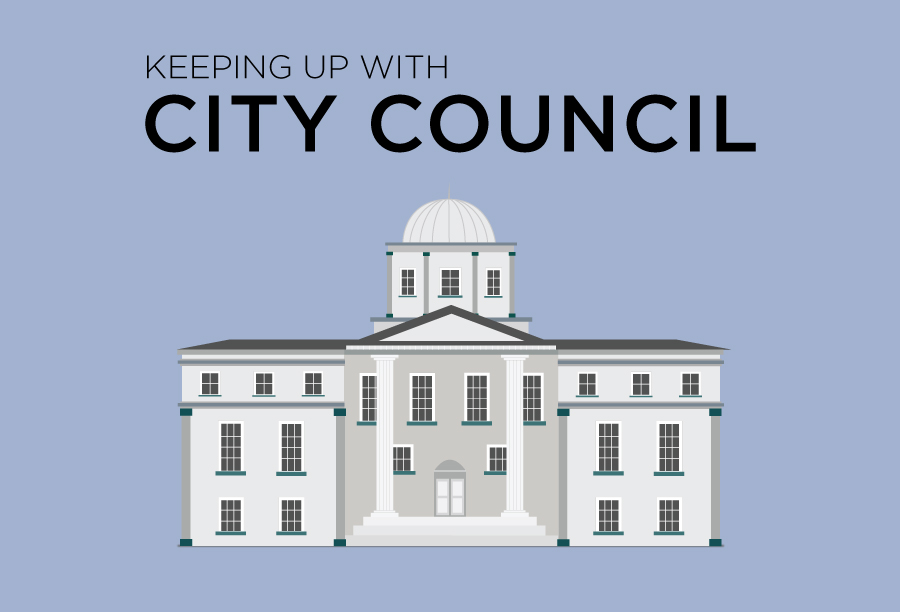
City council approves 10 percent tax on recreational marijuana dispensaries to be placed on June ballot
On Feb. 16, the Davis City Council unanimously approved an ordinance to place a tax on marijuana dispensaries on the June 7 ballot.
The proposal to place a business license tax of 10 percent on recreational marijuana dispensaries was introduced by councilmember Brett Lee.
The ordinance follows the Santa Cruz marijuana business license tax that is set at 10 percent, compared to the tax in Sacramento that is set at four percent.
“We don’t have to charge the full 10 percent if we think 10 percent is too high,” Lee said. “It just seemed like what other places are doing.”
Cal Heritage community officer Katie Stone explained that a 10 percent tax is acceptable, but people care a lot about where tax revenue goes. Cal Heritage is a company that seeks to help integrate hemp and cannabis companies in California communities.
“If people are going to fight back it might be over something like that,” Stone said.
With the possibility of a statewide legalization of recreational use of marijuana in the November election, marijuana will then be legally sold in Davis shortly after. If the council wants to implement a tax on marijuana after the state initiative is approved by voters, they would have to wait until the next municipal election in 2018 to do so.
Lee expressed concern about the possibility of people coming from out of town to buy marijuana in Davis without additional taxes if the council was not to put a tax on the ballot.
“If we don’t have a tax on the books, we would potentially be the lowest-cost municipality for people to buy marijuana. I’m not sure that’s the place people want to be,” Lee said.
If the tax is placed on the November ballot, it would require two-thirds approval in order to pass, but as a general tax during a general election, it only requires a simple majority.
Worried about how the tax would affect medical marijuana patients, Mayor Pro Tempore Robb Davis said the tax might only make marijuana more expensive for patients who rely on it.
The Council agreed to exclude dispensaries that solely provide medical marijuana from the marijuana business tax, but they will still be subject to the regular business license tax.
It is still unclear how the Council will enforce the differentiation between medical and recreational marijuana dispensaries. There is a possibility that dispensaries might try to avoid the tax by labeling themselves as medical dispensaries.
If California legalizes marijuana, it will generate more revenue from taxes that could benefit the state and local governments. Stone said that a sensible, responsible and mature cannabis economy could be very beneficial for Davis.
“There’s all these avenues of revenue that start streaming back into the community; it’s not just reserved for the cannabis community, it’s everyone who gets the benefit,” Stone said. “Creating a legal market creates opportunities for job growth. It’s not just the cannabis businesses that will have employees, it’s all the extra services that come with it, human resources departments who now have to be in charge of handling payroll and all these other things.”
Stone said the city’s attempt to address the regulation of marijuana shows they’re trying to find a way to make it work in Davis. She said the legalization and regulation of marijuana can open up a conversation about its impact on society and can bring additional benefits in the long run.
“You can potentially start talking about more sensible approaches for drug policy reform in general. Understanding that adults have the rights and the ability to make decisions for themselves and what they choose to do with their body and mental health,” Stone said.
Residents at the meeting showed general support for the tax, but questioned some of the details about how the tax would be implemented.
“I think it might be tougher to pass a tax once you have these [recreational marijuana shops] already doing business because now they’re going to fight against it. It’s a smart thing to do it ahead of time,” said Davis resident William Arnold, at the City Council meeting.
According to Harriet Steiner, city attorney, the tax is estimated to raise about $100,000 in annual revenue.
Written By: CARLA ARANGO – city@theaggie.org









